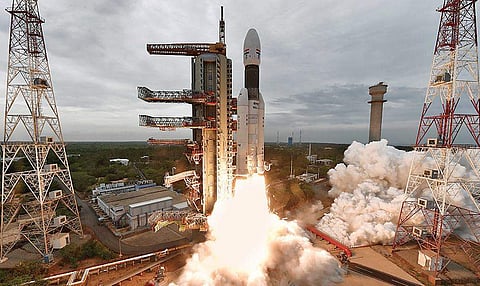

To ensure the smooth execution of its second lunar mission, the Indian Space Research Organisation (ISRO) had tied up with state-run Steel Authority of India (SAIL) to develop specific high-specialty stainless steel products, since a vast amount of indigenously developed special stainless steel is needed for the development of any rocket.
According to the steel major, it has supplied special quality stainless steel from its Salem steel plant in Tamil Nadu to meet ISRO’s stringent specifications, including superior surface finish and close tolerances. For the Chandrayaan-2 mission, SAIL’s special quality sheet has been used in development of the critical Cryogenic Engine (CE20).
The public sector behemoth, along with ISRO, has also taken a major step forward for the indigenous development of the Russian grade ICSS-1218-321 austenitic stabilized stainless steel used in the construction of the space agency’s cryogenic rocket engines. As a part of this initiative, scientists from ISRO’s Liquid Propulsion System Centre (LPSC) and the SAIL team at Salem joined hands and successfully rolled out a trial batch of stainless steel coils at the Salem Steel Plant (SSP), the company said.
According to the firm, Electro Slag Remelted (ESR) and forged slabs conforming to the austenitic stainless steel slabs provided by ISRO were successfully hot-rolled at SAIL’s SSP. This hot-rolled coil of 4 mm thickness was further cold rolled to 2.3 mm thickness as required by ISRO. This 2.3 mm thick sheet has been used in the cryogenic engine (CE20) divergent of the Chandrayan-2 mission. The CE20 engine of ISRO has a double walled chamber, where 2.3/0.6 mm thick 321 stainless steel sheets are used.
In addition to this, five more engines were manufactured with SSP’s ICSS-1218-321 sheets, SAIL said. The company has collaborated with ISRO earlier too, providing quality steel for the country’s indigenous space missions. With this major breakthrough, SAIL said it is optimistic on leveraging other aerospace grades of stainless steel for space launch vehicle components in the future.ISRO works with more than 400 companies and industries in the country, with revenues ranging from under `1 crore to `200 crore a year.